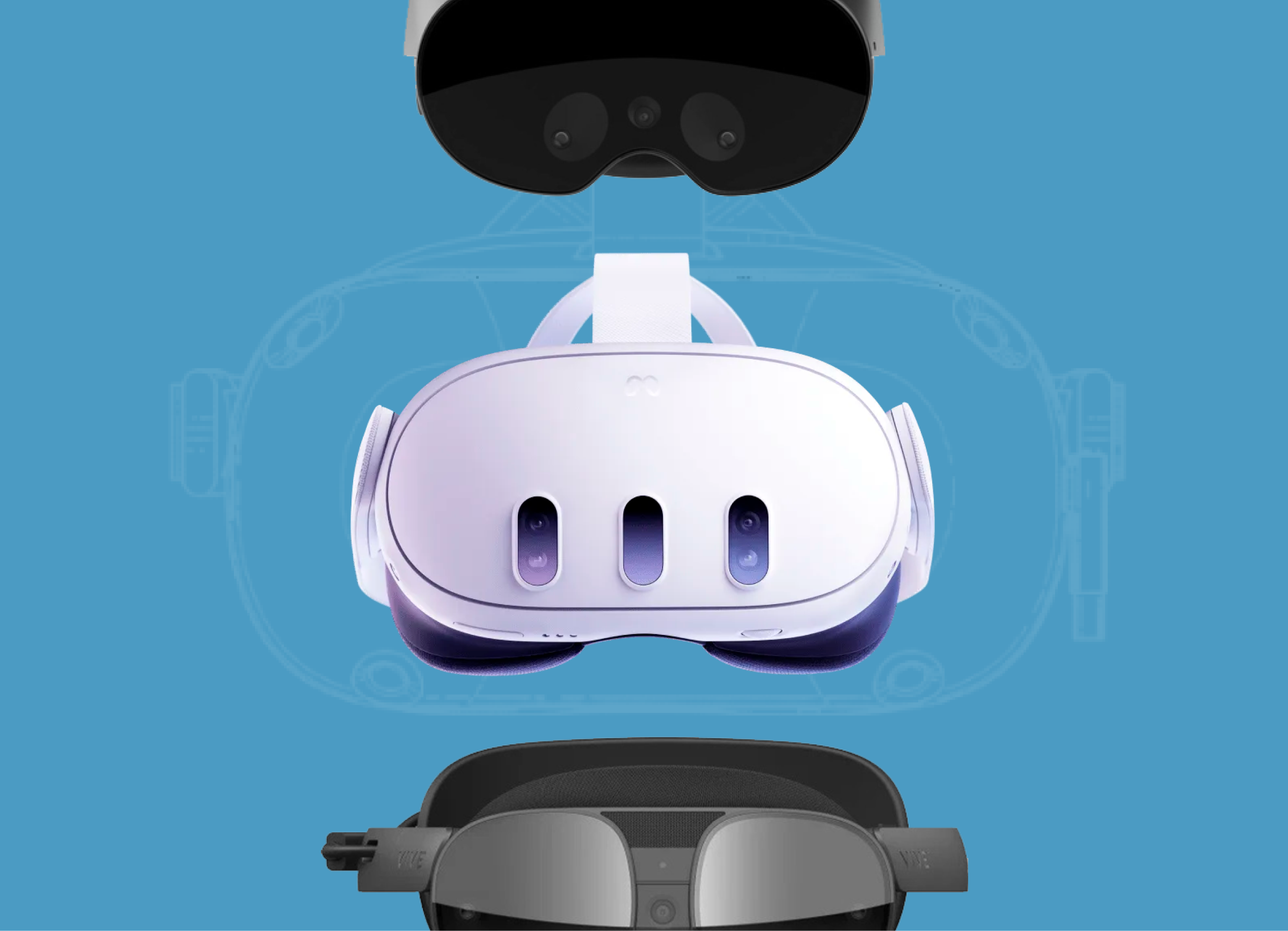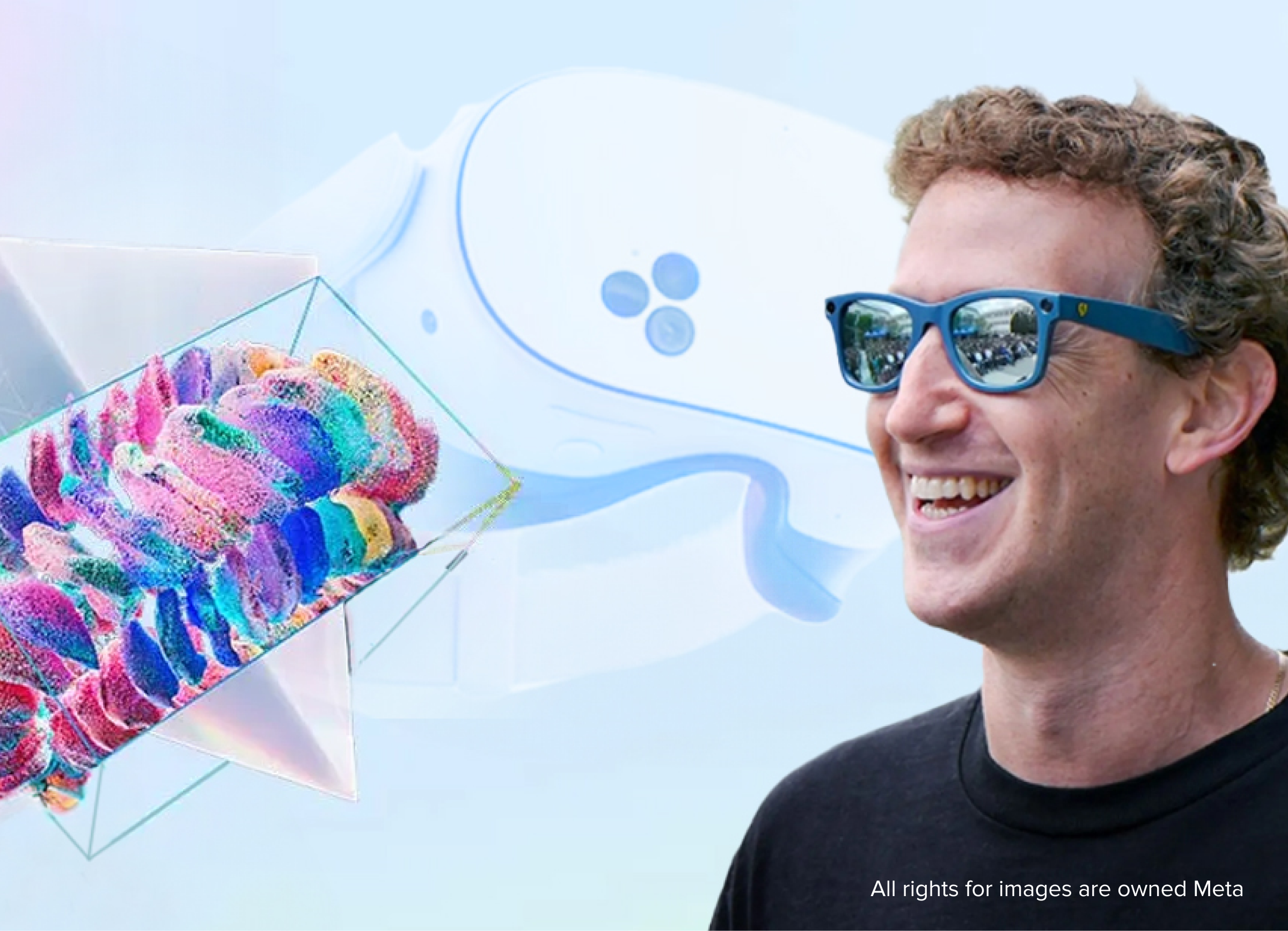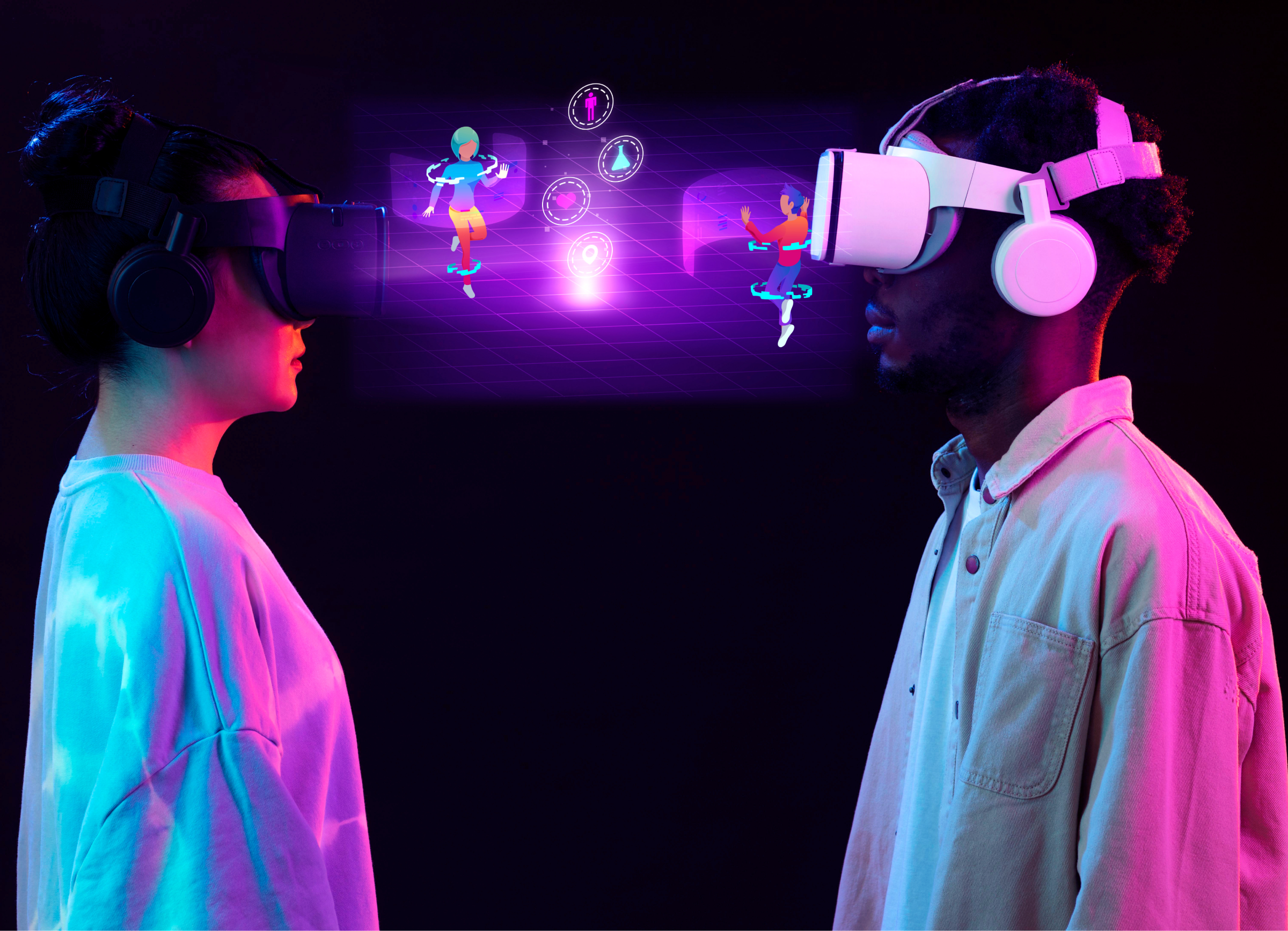
Immersive technologies, such as virtual reality and augmented reality, rely heavily on artificial intelligence. Through AI, these experiences are made interactive and smart, providing data-based insights while also enabling personalization. In this article, we will follow the evolution of immersive technologies in relation to AI, make predictions regarding its future development and bring forth some opinions from experts who explore this area.
Evolution of AI in VR, MR, and XR
The journey of AI in VR, MR and AR technologies has been marked by significant milestones.
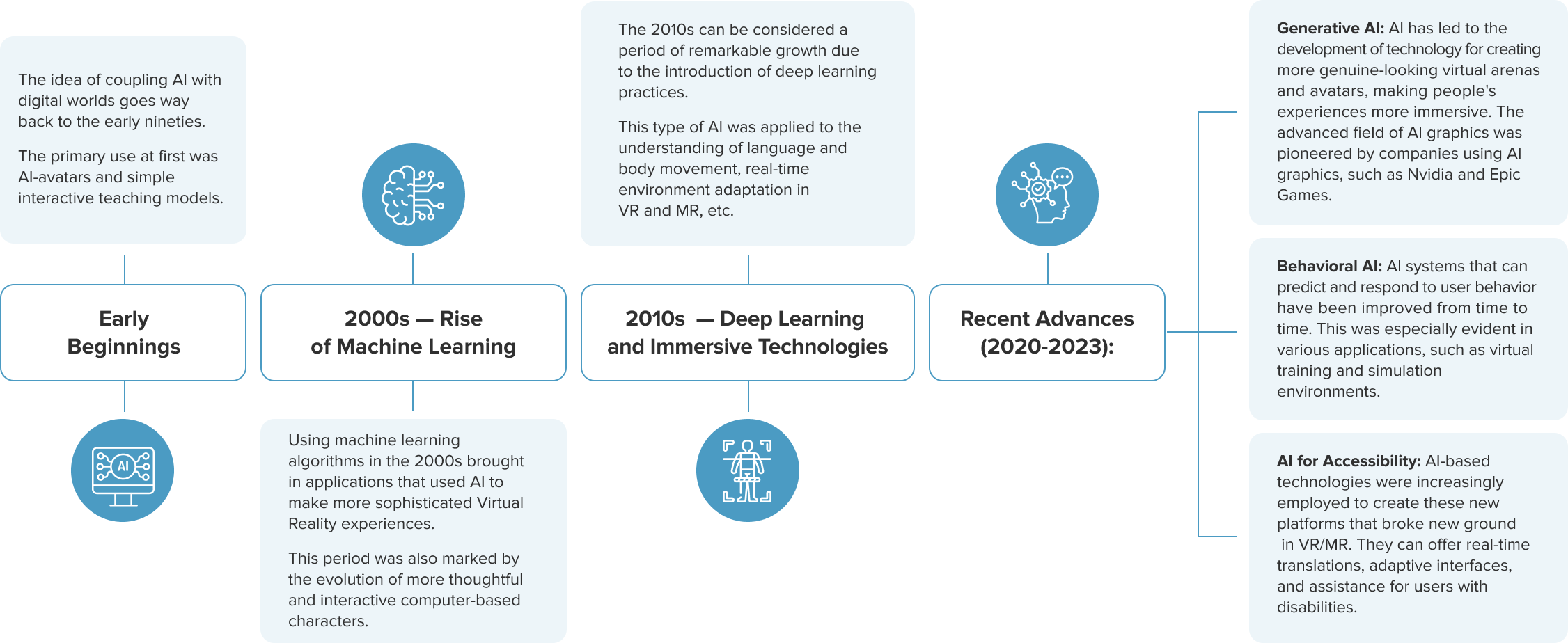
As we have observed, the improvements of AI in immersive technologies have been evidenced by a number of important milestones, starting with the early integration of AI-driven avatars and reaching the current practice of deep learning for real-time environment adaptation. Therefore, let’s envision what we should expect in the upcoming days from AI in the VR/MR/AR field and what experts believe in the approach.
Future of AI in VR, MR, and XR
The IEEE AIxVR 2024 conference was held in January 2024. There were experienced experts and people with the most innovative ideas coming together to talk about how artificial intelligence has reached virtual and augmented reality. This event was made up of completely revolutionary discussions about virtual reality and all the other AI technologies that have really progressed. There were talks from keynote speakers, research presentations, and interactive sessions, showing AI as the source of these enhancements: realistic immersive experiences, exclusive content, and personalized stuff.
One of the most remarkable episodes of the event was the keynote address of Randall Hill, Jr., an important personality in the AI and immersive technologies world. Hill was showing off the change that artificial intelligence has brought to virtual reality. He said:
“Our journey to building the holodeck highlights the incredible strides we’ve made in merging AI with virtual reality. The ability of AI to predict and adapt to user behavior in real-time is not just a technological advancement; it’s a paradigm shift in how we experience digital worlds.”
Another conference, Laval Virtual 2024, was also remembered for the impressive performance of Miriam Reiner, owner and founder of VR/AR and Neurocognition Laboratory at Technion, who was presenting the speech “Brain-talk in XR, the synergetic effect: implications for a new generation of disruptive technologies”.
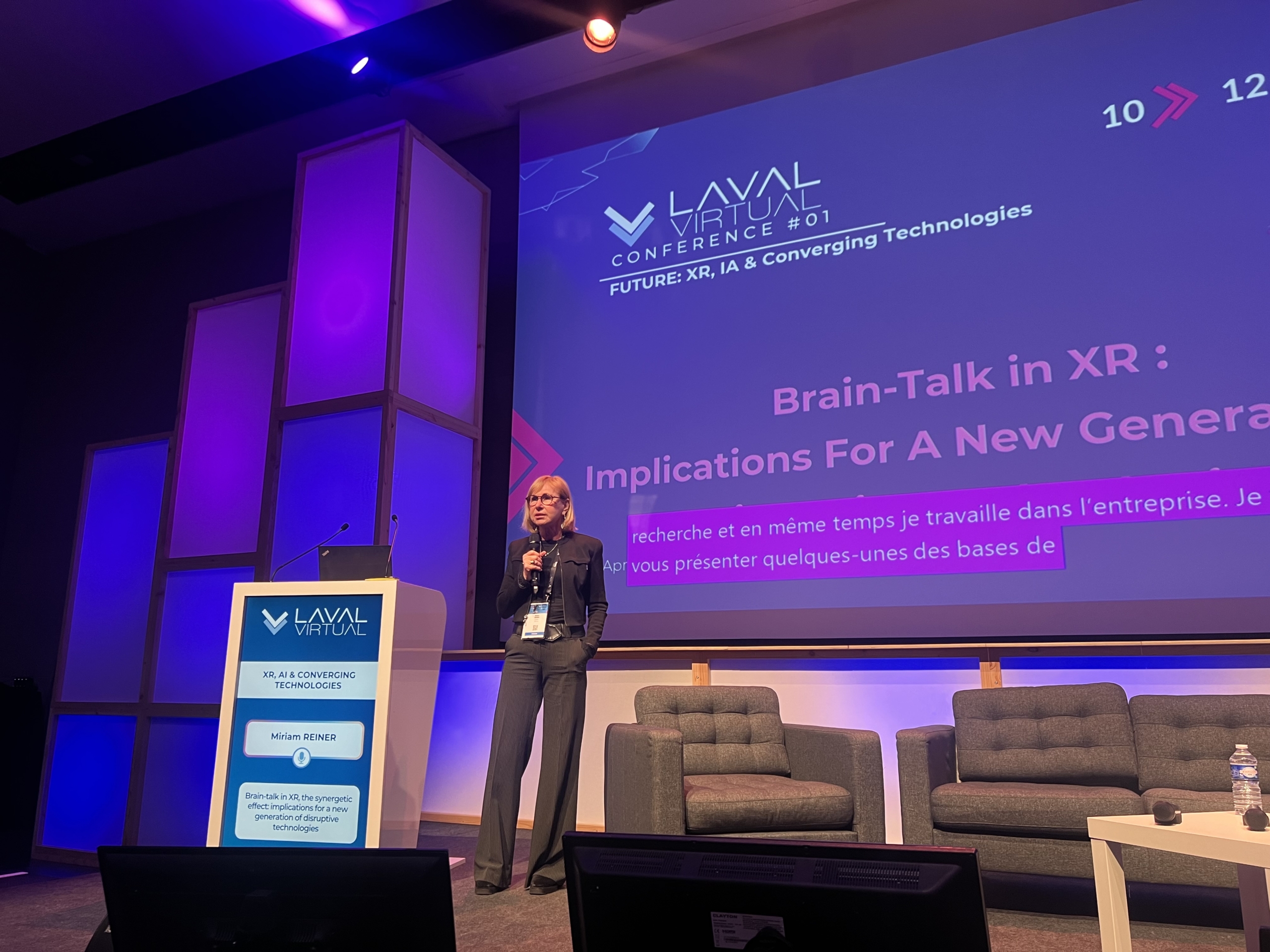
Miriam Reiner shared an insightful quote at the IEEE AIxVR 2024 conference, emphasizing the transformative potential of AI in VR and AR. She stated:
“The synergetic effect of brain-computer interfaces and AI in XR can lead to a new generation of disruptive technologies. This integration holds immense potential for creating immersive experiences that respond seamlessly to human thoughts and emotions.”
Statistical data, in particular, provides a summary of the assumptions regarding the use of AI in immersive technologies. A notable point from a recent market analysis is that the worldwide XR market will increase by almost $23 billion, growing from $28.42 billion in 2023 to $52.05 billion by 2026, due to the popularization of next-generation smart devices and significant advancements in AI and 5G technologies.
A report by MarketsandMarkets foresees the development of the AI segment in XR, projecting the market to reach $1.8 billion by 2025. This indicates that the expansion of AI in creating more interactive and personalized immersive experiences is becoming a major trend.
Conclusion
AI adds certain features in VR, MR, and AR solutions, such as an improved user experience, higher-quality interactions, smarter content creation, advanced analytics, and enhanced real-world connections. It significantly transforms the way we perceive immersive technologies.
